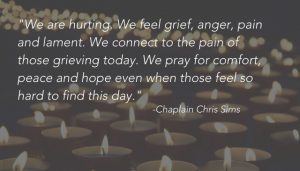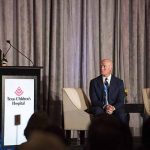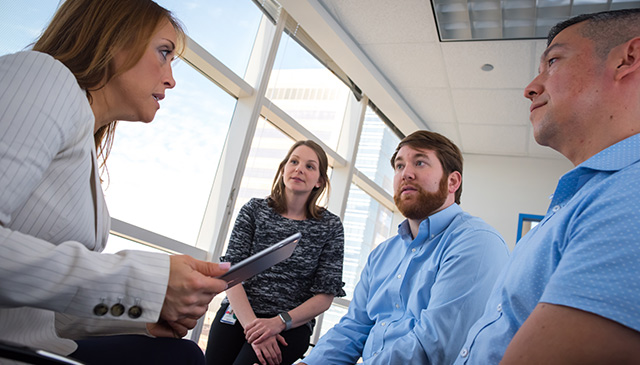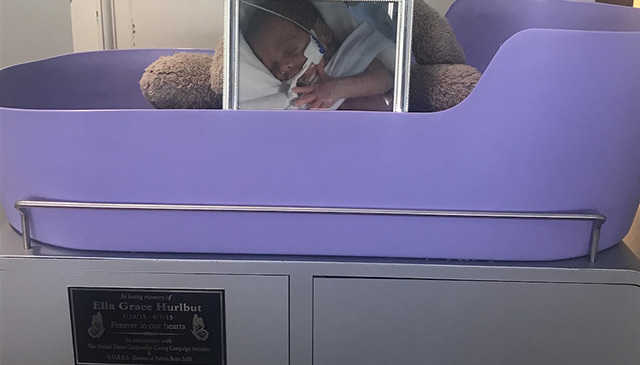December 2, 2019
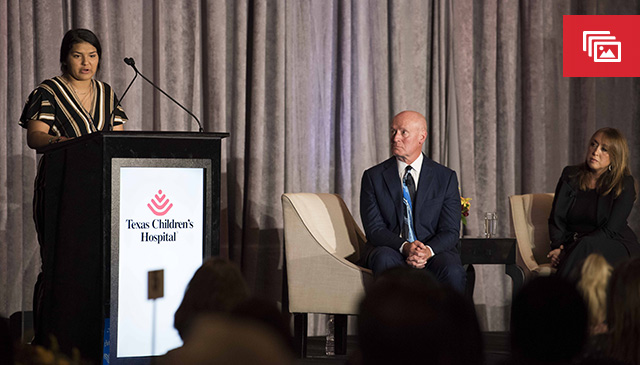
On November 14, hundreds of Texas Children’s Hospital friends and supporters gathered at the Westin Galleria Hotel for this year’s The Forum Luncheon, which highlighted the astounding work of the Trauma and Grief (TAG) Center at Texas Children’s.
The program was emceed by Physician-in-Chief Dr. Mark Kline and featured Dr. Julie Kaplow, the TAG Center’s founding director and the Shannon and Mark A. Wallace Chair in Pediatric Behavioral Health, who spoke about the challenges created by trauma and grief in the lives of children and the community, and about the TAG Center’s efforts to meet those challenges head on.
Trauma- and grief-informed care
The TAG Center at Texas Children’s uses evidence-based practice to provide care for patients, from 7 to 21 years old, and their families who have experienced trauma or grief. Under Kaplow’s leadership, the center uses a scientist-practitioner model with three primary aims:
- Provide evidence-based assessments and interventions for youth who have experienced traumas and/or losses
- Conduct research on adaptive and maladaptive responses to trauma and loss, as well as treatment effectiveness
- Provide training and professional education in trauma- and grief-informed assessment and interventions using best-practice teaching methods
The TAG Center’s impact on the community was immediate. Less than a month after Kaplow started at Texas Children’s in 2017, Houston experienced Hurricane Harvey, one of the most devastating storms in the nation’s history. To help support the most vulnerable populations, and to serve the mental health needs of children affected by the hurricane and flooding, the TAG Center launched the Harvey Resiliency and Recovery Program. Another of the program’s primary goals was to equip the community to provide the same services, primarily in schools.
The TAG Center increased access to in-house services by partnering with Lyft to bring families to the hospital and by paying for parking. Generous philanthropy also made it possible to deploy mental health clinicians on one of Texas Children’s Mobile Clinics, making much-needed mental health care available to many immigrant families in areas of Houston where they otherwise would not have had access.
In the two year’s since Harvey, the storm’s affects are still being felt and the TAG Center is now seeing more children exhibiting mental health symptoms that require treatment.
Nine short months after Harvey, Greater Houston was struck with another horrible tragedy – The Santa Fe school shooting.
In the immediate aftermath, the TAG team went out and provided immediate support for students and teachers, which included education about the symptoms people might be experiencing, normalizing those symptoms, and helping identify children who might be in need of a higher level of care. The center also held community meetings to educate people about possible triggers of trauma and loss in the weeks and months following.
In a commitment to the long-term recovery from this devastating tragedy, the TAG Center partnered with other organizations to launch the Santa Fe Resiliency Center. There are now four TAG Center clinicians providing trauma- and grief-informed assessment and treatment to the many students, teachers and families who continue to need help.
One of those students – 17-year-old Reagan Gaona – was present at the event and spoke to the audience about her experience of losing her boyfriend in the shooting and the terrible pain, depression and anxiety that followed. It was after meeting with Marisa Nowitz, a TAG Center clinician, that Reagan was able to begin coping. She began to use writing as a tool to let her feelings out and to help remember memories of her boyfriend. Other exercises, she said, helped her deal with anger and to appreciate things in life more.
“If it weren’t for the TAG Center, I don’t know where I’d be,” Reagan said. “I really hope that after today, people will see what the TAG Center is capable of doing for people like me and why it’s so important. If it weren’t for the TAG Center and Marisa coming to Santa Fe, I don’t know where I’d be.”
Learn more about the Trauma and Grief Center at Texas Children’s.


